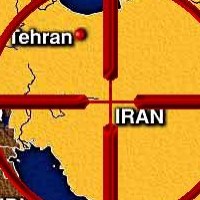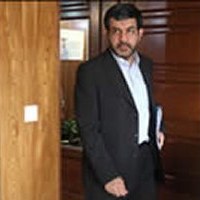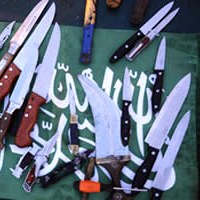![]()
Sun, April 17, 2011 | The Meir Amit Intelligence and Terrorism Information Center
Iran to Restrict Activity of NGOs
Last week, the Majles resumed discussions of a bill to limit the activity of Iran’s NGOs. According to the bill, first brought up in 2007 and discussed throughout this year, all NGOs will be monitored by a supreme committee under the Interior Ministry, whose members would also include representatives from the judiciary branch, the interior, intelligence and foreign ministries, the Religious Endowments Organization, the Mosques Organization, the Islamic Propagation Organization, and the Revolutionary Guards’ Basij force. The committee will be authorized to approve the activity of NGOs seeking to work in Iran and revoke their license. The committee will also have the power to monitor the NGOs’ board members, approve their participation in government and non-government projects, approve their cooperation with international organizations and UN-run agencies, approve their participation in seminars and conferences abroad, and even in processions and demonstrations. The committee will also be in charge of allocating resources to the NGOs.
Opponents claim that the bill, which further curbs the freedom of association in Iran, is designed to let the government put an end to the activity of independent NGOs and bolster those NGOs affiliated with the government and supporting its policy (Jaras, April 8).
An editorial published by Mardom Salari, a daily affiliated with the traditional conservative bloc, claims that the approval of the bill by the Majles will weaken the NGOs and limit their influence in society. The daily argues that the Majles members should be guided by the philosophy that is the foundation on which the NGOs operate, and discuss the bill in a way that will remove existing obstacles to their work and make it easier for them to operate effectively, rather than pose even greater obstacles to these organizations. Even if some Majles members have criticism about the activity of some NGOs, the article says, they must not prohibit their activity as they play a vital role in the expansion of public participation in managing social and political affairs. These organizations are designed to serve as mediators between the government and the public and they are critically important for the functioning of Iran’s civil society and the citizens’ ability to take part in the shaping of their lives. If the organizations are limited by a supervisory committee, they will no longer be able to serve as mediators, which would compromise their vital role and their independence (Mardom Salari, April 9).
Following the establishment of Mohammad Khatami’s reformist government in the late 1990s, thousands of NGOs were established in Iran, which fulfill a major role in the existence of the country’s civil society. The organizations operate in numerous areas, including the advancement of women’s rights, aid to people in need, environment protection, etc. In recent years, Iranian authorities have stepped up their efforts to restrict the activity of some of these organizations, particularly those working for human rights. Following the political crisis that broke out following the 2009 presidential elections, some organizations were shut down (for example, the organization for the protection of political prisoners’ rights), and legal action was taken against some of their members.



 RSS
RSS











#Iran to Restrict Activity of NGOs | #democracy http://j.mp/f6vu6x
#Iran to Restrict Activity of NGOs | #democracy http://j.mp/f6vu6x
RT @CrethiPlethi: #Iran to Restrict Activity of NGOs | #democracy http://j.mp/f6vu6x